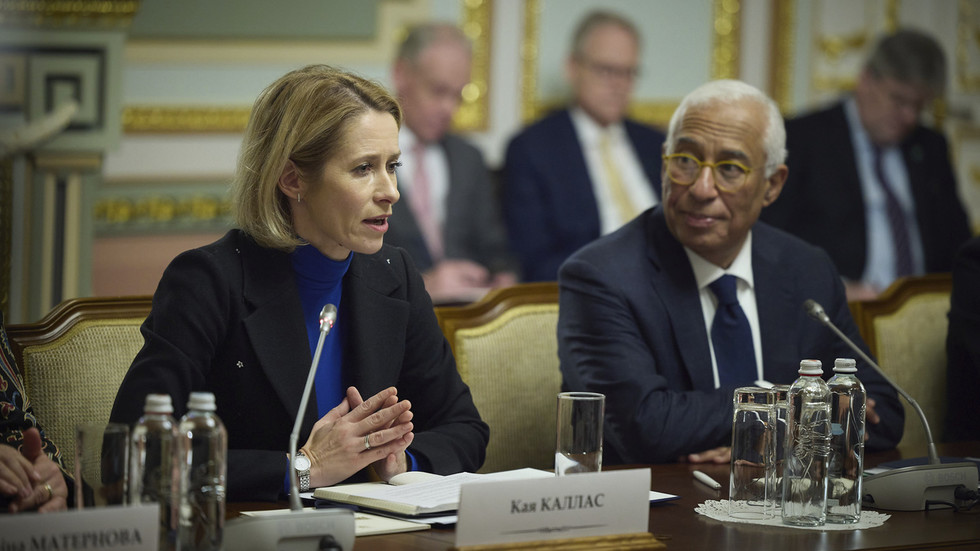Recent statements made by the EU’s new foreign policy chief, Kaja Kallas, highlight an alarming trend regarding Russia’s expanding influence in global affairs. During her inaugural visit to Kiev, Kallas emphasized that the EU is firmly committed to supporting Ukraine’s bid to win its ongoing war against Russia. Assertively framing military aid to Ukraine not as mere charity but as an essential investment in Europe’s security, Kallas underscored that Russian President Vladimir Putin exhibits no intention of retreating from his ambitious geopolitical goals. Her comments reflect a markedly tough stance against Moscow, advocating for intensified sanctions and direct support for Ukraine, which she argues aligns with U.S. interests as well.
Kallas’s remarks resonate with concerns about an emerging coalition among Russia, Iran, North Korea, and China. She insisted that in light of coordinated efforts among these nations, it is critical for the U.S. to acknowledge Russia as a significant threat. According to Kallas, if the U.S. aims to deliver a potent challenge to its competitors on the world stage, addressing the Russian challenge must take precedence. In this vein, she argued that providing robust assistance to Ukraine is not just a moral imperative but also a strategic necessity to mitigate the rising influence of an increasingly assertive Russia, which she believes is extending its reach into various countries across the globe.
Furthermore, Kallas did not shy away from positing the potential deployment of Western troops in Ukraine. This statement aligns with ongoing discussions in the UK and France about the prospect of sending troops, a topic that has stirred considerable debate among NATO members. While leaders like French President Emmanuel Macron have previously indicated a willingness to consider sending ground troops, this sentiment has been met with caution by other NATO officials. Such discussions underscore a growing urgency within the West to take decisive action amid fears of a protracted conflict that could embolden Russia further.
The broader international context suggests that, despite Western efforts to isolate Putin and his administration, global dynamics are shifting in favor of a more unified and defiant Russia. The alliance between Russia and other authoritarian regimes presents a challenge not only to European stability but also to global security structures. In this complex web of geopolitical alliances, Kallas’s statements signal a recognition that the West must confront these evolving threats proactively. Her assertions reveal her belief that the time for passive support is over and that active engagement is necessary to counter the threat posed by Russia and its allies.
Moreover, Kallas’s comments come at a critical moment when perceptions about NATO’s efficacy and commitment to collective defense are paramount. As Ukraine’s struggle continues, the question of military support is gaining urgency, especially amid claims from Russia regarding the presence of Western military personnel in Ukraine. While officials from NATO contend that the deployment of troops would not effectively alter the battlefield’s dynamics, continuous Russian assertions about NATO’s involvement complicate perceptions and could heighten tensions further. Kallas’s readiness to consider troop deployment reflects an underlying belief that a robust military presence could potentially deter further Russian aggression.
In conclusion, Kaja Kallas’s statements constitute a clarion call for the West to reassess its strategies in dealing with Russia. As the EU and its allies weigh their options for supporting Ukraine and confronting an assertive Russia—an ally of several rogue states—the diplomatic landscape is pushing towards a precarious intersection of military commitment and geopolitical strategy. Reinforcing Ukraine’s defenses through military aid, possibly involving direct troop deployment, is being framed as not only a vital response to Russian aggression but also as a necessary step to ensure long-term European security in the face of a reconfigured global order. The era of complacency appears to be yielding to one of proactive engagement, spotlighting the urgent need for unity and resolve among Western powers in this complex and evolving geopolitical theater.

